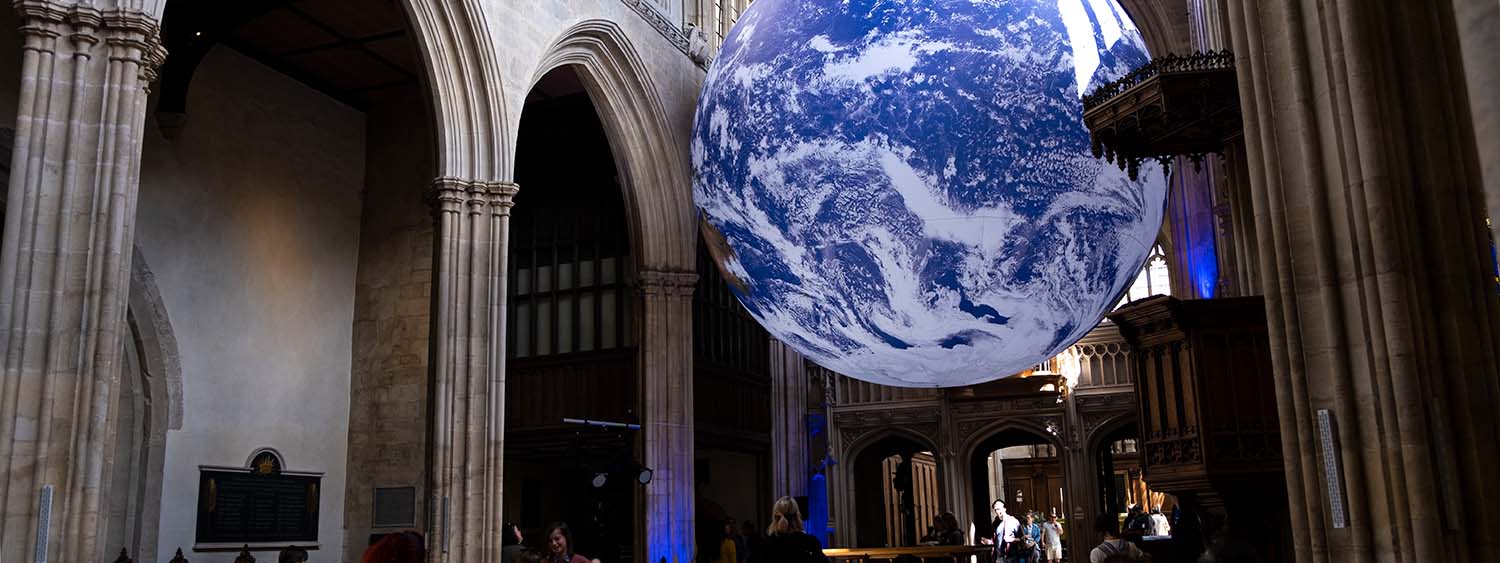Jump to... Creation care as Christian mission | Our response | What you can do | Further information
“The earth is the Lord’s and everything in it, the world, and all who live in it” – Psalm 24:1
Creation care as Christian mission
The fifth mark of mission states that as Christians, we are ‘to strive to safeguard the integrity of creation, and sustain and renew the life of the earth.’ This planet is in crisis. Climate change, pollution and biodiversity loss are threatening life on earth. The science has been clear for a long time – the world is on the brink, and it is humanity’s exploitation of the earth and its resources that have led us to this point.
But it’s not too late.
The fifth mark of mission recognises that environmental issues and the state of the earth are not just the responsibility of scientists, ecologists, conservationists or so-called ‘eco-warriors’. They are an integral part of what it means to be a Christian. As followers of Jesus, we are commanded to love God and to love our neighbours as ourselves. To love God is to love all that he has made and created. And to love our neighbours as ourselves is to ensure that our actions and decisions are a force for good, not harm.
We cannot show love to God and neighbour without acting for the good of creation.
Learn more about the fifth mark of mission as part of a new online course exploring all five marks, now live on the Learning Hub.
Jump to... Creation care as Christian mission | Our response | What you can do | Further information
Creation care conversations
We are hosting a series of events in 2025, to support those taking their first step into creation care, and those wanting to connect with others as they continue their journey. Everyone welcome:
'Starting small: a first step into creation care'
21 May 2025, 3.30-6.00pm - Thatched Barn, Christ Church, Oxford.
For those interested in taking a first step, either as an individual or as a church. Register via Eventbrite.
'Creation care conversations'
For churches looking to share ideas, connect with other environmental groups, and find support on their Eco Church journey.
21 June - St Edburg's, Bicester
13 September - St Mary's, Princes Risborough
18 October - All Saints, Wokingham


How are we responding in the Diocese of Oxford?
Our common vision
We have listened with God to the big questions, the challenges, and opportunities we have as a diocese. Enironmental action is one of our five areas of focus. See the latest data dashboard for this area of work and find out more about our common vision.
Since declaring a climate emergency in March 2020, as a diocese we have committed to becoming an Eco diocese, working through the awards with an aim to achieve silver by 2026. This encompasses every aspect of creation care, thinking about our policies, training programmes, procurement, investment, building and land management, and wider engagement with churches and communities through Eco Church.
What can I do?
Responding to the climate emergency can feel complex, challenging, and often unaffordable. There are many different – sometimes conflicting – messages, but here are four ways you can respond.
1. Inform
Enrol onto our new ‘five marks of mission’ course on the learning hub. Watch this video series from the Lausanne Global Classroom. Visit our EcoHub for book recommendations, courses and factsheets.
2. Pray
Prayer is at the heart of Christian worship. Regularly praying for the environmental crisis, for those affected, for world leaders, and for local action, is vital. Use this monthly prayer resource from ‘Pray and Fast for the Climate’, follow Christian Aid’s daily prayer diary or sign up to Tearfund’s prayer email.
3. Act
More than 60% of the change required to get to net zero involves personal behavioural change by individuals and communities in the three areas of transport, home heating and diet. Try these nine ways to care for creation, pledge to Take the Jump, or participate in Count Us In for ideas that make a real difference.
4. Advocate
One of the biggest ways we can bring about change is through conversation. Whether speaking to family, friends, community leaders or politicians, advocating for the planet, and for people affected by climate impacts, drives change at a societal level. Download this guide on having climate conversations, or receive training in engaging your local MP.
Jump to... Creation care as Christian mission | Our response | What you can do | Further information
How are our churches responding?
Watch this short video and read these stories to be inspired by churches, schools and people taking action for creation across the diocese.
You can also visit the pages below for more ways your church can respond to the climate and ecological crises.
More information
Eco Church
Easy-to-follow advice on sustainability, reducing energy consumption and saving money for your church, no matter your tradition or location.
Energy audits
Arrange a subsidised energy audit to inform efforts to reduce your church carbon footprint.
Net zero
Supporting our churches, schools, vicarages, offices to reduce emissions as far as possible, and looking at the impact of some of our resources.
Biodiversity
Information on supporting biodiversity in a churchyard or church garden and programmes to get involved in.
EcoHub resource library
Your one-stop shop for information, practical advice and theological reflection on how we can best care for God’s creation.
Support and guidance
A collection of resources to enable everyone to respond to the climate and ecological crisis.
